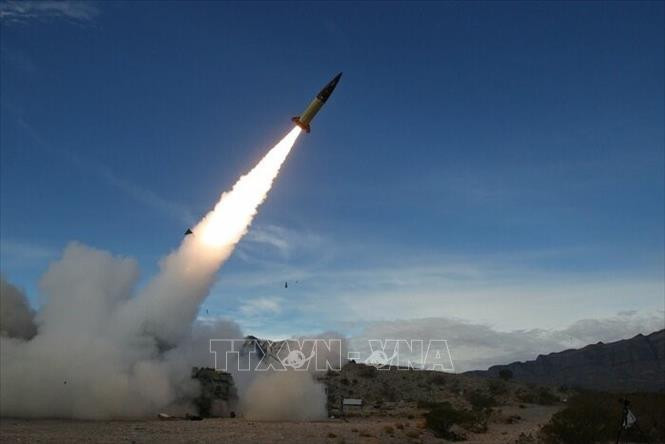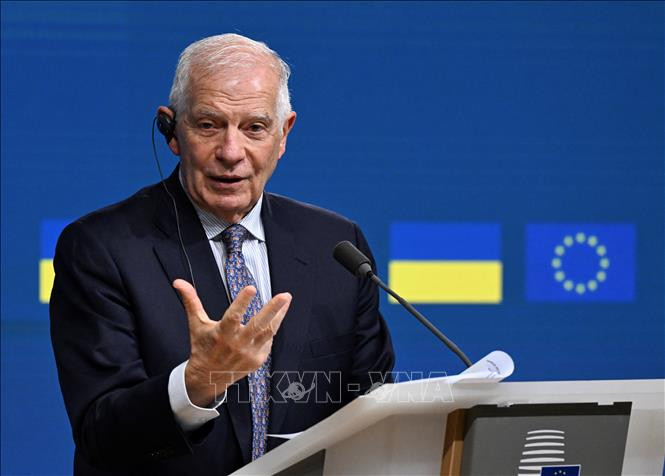The US and its European allies have stepped up efforts to pressure Israel to show restraint after it was hit by an unprecedented attack by Iran over the weekend.

According to The Times of Israel on April 16, US Treasury Secretary Janet Yellen said the US will coordinate with allies and adopt sanctions in the coming days to continue imposing sanctions on Iran.
The US Treasury Department is working to enlist the support of China, its G7 partners and other major global suppliers to reduce Iran's oil exports and prevent Iran from obtaining the microelectronics needed to manufacture drones.
According to Ms. Yellen, previously, the US Treasury and State Departments had taken action to prevent Iran's behavior by reducing its ability to export oil.
The US administration is unlikely to seek to strengthen sanctions on Iran's oil exports due to concerns about a spike in oil prices and concerns about China's response, according to some analysts.
According to British Prime Minister Sunak, the G7 has been studying a package of coordinated measures against Iran. Italy, which currently holds the G7 presidency, said the new sanctions would target individuals.

Meanwhile, European Union foreign policy chief Josep Borrell also announced that the EU is looking to expand sanctions against Iran after several member states requested it. “I will ask the External Action Service to start the necessary work on these sanctions,” he said.
According to Mr. Borrell, this proposal would expand the sanctions regime to prevent Iran from supplying weapons to pro-Iranian forces in the Middle East. Germany, France and several other EU members have publicly supported this proposal.
News of the sanctions comes amid fears in the West that Israel’s retaliation could push the region into a wider war that could draw them in and undermine international support for Israel. Senior Israeli officials have vowed to respond to Iran, but have also pledged to consider the views of the United States and other allies.
British Prime Minister Rishi Sunak told his Israeli counterpart Benjamin Netanyahu in a phone call on the evening of April 16: “Further escalation will only further destabilize the region. This is a time for calm.”
Earlier, on the night of April 13 and early morning of April 14, Iran launched over 300 drones and missiles to attack Israel. The purpose was to respond to the attack on the Iranian Embassy in Syria on April 1, which Iran accused Israel of being the culprit. Chief of Staff of the Iranian Armed Forces, General Mohammad Bagheri, called on Iran not to retaliate and made it clear that Israel's retaliatory actions would lead to a much more serious reaction from Iran.
However, on April 15, the Chief of Staff of the Israel Defense Forces (IDF), Lieutenant General Herzi Halevi, announced that the country would respond to the above attack by Iran. The Israeli War Cabinet has reviewed military response plans as well as considered other diplomatic options.
Meanwhile, the international community continues to call on relevant parties to exercise restraint and stop escalating tensions in the Middle East.
Japanese Foreign Minister Yoko Kamikawa expressed concern over Iran's attack on Tuesday and expressed concern that tensions could spread in the region. Kamikawa made the remarks during a phone call with her Iranian counterpart Hossein Amir Abdollahian. The Japanese Foreign Ministry said Kamikawa also called on Iran to exercise restraint to avoid escalating tensions in the Middle East.
Previously, on April 15, US President Joe Biden called on Israel to consider carefully and strategically before reacting because it could cause the conflict to spread.
Jordan's King Abdullah II expressed concern that current developments in the Middle East could escalate conflicts, endangering regional security and stability.
From Europe, Mr. Borrell also said that the Middle East region is standing "on the brink" and called for a de-escalation of tensions between Israel and Iran.
In a joint statement, G7 leaders stressed the need to avoid further escalation, calling on parties to refrain from actions that could aggravate tensions in the region.